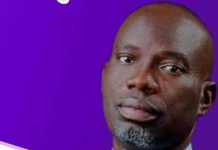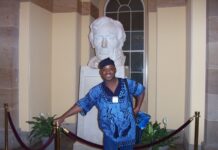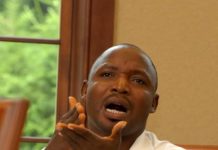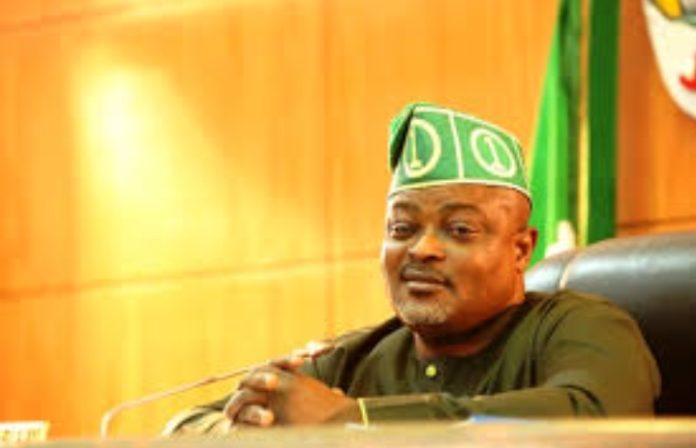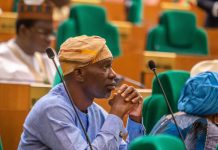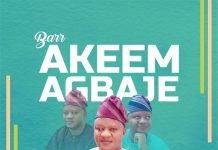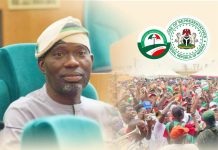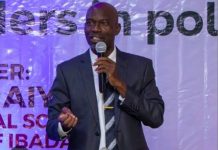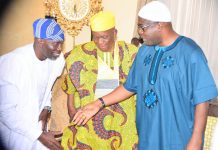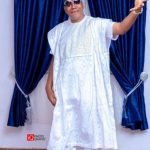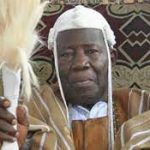Ibadan – In the ever-evolving landscape of Lagos State politics, few stories are as dramatic as that of Rt. Hon. Mudashiru Obasa, the recently ousted Speaker of the Lagos State House of Assembly. His political journey, once marked by triumphs and a series of achievements, has met a sudden and shocking end, underscoring the precarious nature of power and the intricate web of political alliances.
Obasa’s rise began at the grassroots of Agege Local Government, where he demonstrated political acumen at a young age. Over two decades, he ascended through the ranks, serving multiple terms as a lawmaker and eventually becoming the Speaker in 2015. His tenure was characterized by significant legislative contributions and a notable presence in the political sphere. However, his journey has not been without controversy. Allegations of corruption, including the misappropriation of public funds and dubious financial dealings, have haunted him throughout his leadership.
The tipping point came during his recent absence from the House when a vote led to his impeachment on various counts of corruption. This decisive action was not taken lightly; it was the product of a well-structured political mechanism—the Governing Advisory Council (GAC)—which plays a critical role in monitoring the performance of political appointees. This Council, having previously recommended the impeachment of former Governor Akinwunmi Ambode, clearly functions as a powerful arbiter in Lagos State politics.
Obasa’s removal is particularly poignant given the backdrop of his rumored gubernatorial ambitions for 2027. His aspirations, however, seem to be colliding with the interests of Seyi Tinubu, the son of the President of Nigeria, and former two-term Governor of Lagos State, Senator Bola Ahmed Tinubu, who is also eyeing the governorship seat. The rivalry between these two political figures is emblematic of the larger power struggles within the All Progressives Congress (APC), where alliances can shift rapidly and loyalties can be tested.
The fractures between Obasa and the incumbent Governor, Babajide Sanwo-Olu, revealed deeper tensions within the party. The Assembly’s rejection of several commissioner nominees proposed by Sanwo-Olu raised eyebrows and hinted at discord between the executive and legislative branches. Additionally, Obasa’s delay during the 2025 budget presentation showcased a lack of cohesion that could not be overlooked by party leaders.
The narrative of Obasa serves as a cautionary tale about the volatility of political fortunes. What once appeared to be a solid foundation of support has crumbled under the weight of allegations and intra-party conflicts. His impeachment marks not just the end of his tenure but also a critical juncture in Lagos politics as the APC navigates its future leadership landscape.
As the dust settles, questions loom over Obasa’s next steps and the potential for legal challenges. Will he attempt to clear his name and reclaim his political standing, or will he fade into the background of Lagos’s political history? The rise and fall of Obasa encapsulates the complexities of political ambition and the unforgiving nature of power dynamics—reminding us that in the world of politics, the ground can shift beneath one’s feet in an instant.
The story of Obasa is far from over; it is, instead, a pivotal chapter in the ongoing saga of Lagos State politics, filled with lessons on ambition, accountability, and the intricate dance of governance. As new leaders emerge, the political landscape will continue to evolve, but the legacy of both Obasa and the forces that led to his downfall will undoubtedly linger in the annals of Lagos State’s history.
Hon. Femi Adebisi is a Former Vice Chairman, Ibadan South East LG Mapo, a Writer, a Public Affairs Analyst and a Social Commentator
